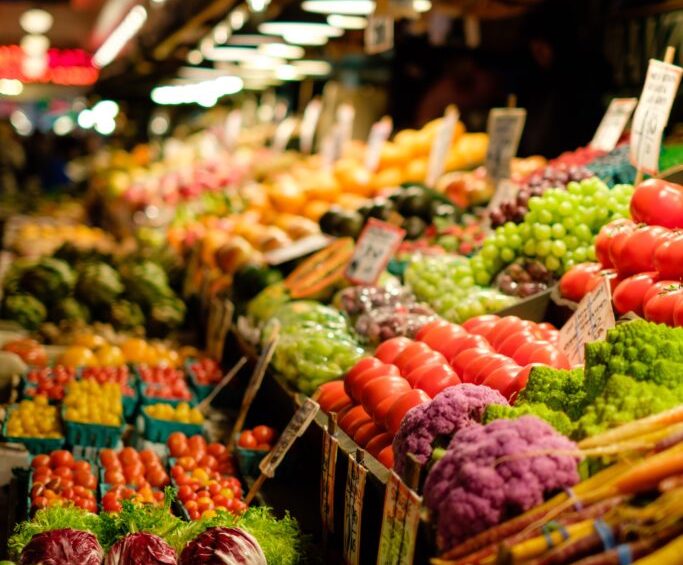Ramadan is a time of religious reflection, greater devotion and self-willpower. It is also a time when quite a few Muslims appear alongside one another to share meals as they split their fast.
Nonetheless, with elevated foodstuff consumption throughout the thirty day period of Ramadan, it is effortless to drop into the entice of building additional waste than vital.
The Effect of Meals Squander
Foodstuff waste has a substantial unfavorable social and environmental impression on our world. In accordance to the United Nations, just one-third of all food created globally is misplaced or wasted every single calendar year. This signifies that 1.3 billion tons of food items, value almost $1 trillion, are thrown absent annually.
Yet globally, above 800 million persons experience from hunger or malnutrition. And food squander exacerbates this dilemma by diverting meals means away from these who require them most.
Food waste also accounts for 8% of worldwide greenhouse gas emissions and leads to the waste of drinking water and other normal methods used in meals manufacturing.
Our teams at Islamic Aid perform to assistance hundreds of vulnerable communities all over the world, a lot of of whom are affected by starvation crises and local climate-induced disasters.
What Does Islam Say About Foods Waste?
In Islam, throwing away food stuff is discouraged. Allah (SWT) suggests in the Quran, “But squander not by extra, for Allah loveth not the wasters.” (Al-Araf, 7:31)
The Prophet (ﷺ) also explained, “A human getting fills no even worse vessel than his stomach” (Sunan Ibn Majah) and encouraged the believers to keep away from breaking their rapid with extra than what they can eat.
Consequently, it is vital for us to be conscious of how a great deal foods we waste, specifically in this month of gratitude and self-reflection. But how do we lessen our day-to-day food squander throughout Ramadan?
Tips for Minimizing Food stuff Squander Throughout Ramadan
Food Planning
Scheduling meals in progress can aid us to steer clear of purchasing too considerably foodstuff. We also preserve far more income, as by scheduling our foods for the week in progress, we’ll have a shopping listing and funds to adhere to. Preparing also will help to guarantee that we eat a wide range of nutritious and nutritious foods during the thirty day period.
Store Sensibly
When we do go searching, it is critical to shop sensibly. We can stay clear of impulse buys by sticking to our procuring listing and only getting what we need to have. Picking fruits and greens that are in time and locally sourced can also reduce the carbon footprint of our food stuff.
Retail store Food Appropriately
Right storage is also critical to lessening food squander. By storing food items in airtight containers and trying to keep fruits and greens independent, we can lengthen their shelf existence and avoid spoilage. This can help you save dollars and lessen the amount of money of foodstuff that we will need to toss absent.
Provide Smaller Parts
During Ramadan, we may perhaps be tempted to overeat, which can guide to food stuff waste. By serving scaled-down portions and using smaller plates and bowls, we can assistance to management our parts and cut down food items squander. This can also be helpful for our health and well-remaining.
Use Leftovers Creatively
Leftovers can be a useful useful resource for minimizing foods squander. We can get resourceful by turning them into new dishes. For case in point, leftover rice can be utilised to make fried rice or rice pudding. This not only can help us squander fewer foodstuff but also adds selection to our meals.
Donate Excess Food items
Eventually, donating extra foods is a great way to prevent throwing away meals and support all those in have to have. By donating excessive food stuff, we can make a beneficial effect in our communities and help people who are significantly less fortuitous.
Islamic Aid and Cutting down Food items Insecurity
For over 40 several years, Islamic Aid has been doing the job to relieve starvation and lessen food stuff insecurity in some of the world’s poorest and most devastated areas.
These include our crisis relief applications, which deliver foods packs, as well as entry to other primary necessities, to households who are struggling with conflict, purely natural disasters or other crises.
In addition to unexpected emergency foods aid, Islamic Aid also can help provide communities with extended-lasting sources that let them to turn out to be self-enough. Our groups enable communities set up sustainable agriculture tactics and come to be educated and properly trained in nourishment, wellbeing and cleanliness, making sure that the generations after them can also thrive and build bright futures.
The Worth of Minimizing Food Squander
In summary, Ramadan is certainly a time for religious reflection and growth. But it is also a time to consider our impact on the ecosystem and our communities.
Cutting down foods waste for the duration of Ramadan is not only a way to our gratitude to Allah (SWT) and give to those in need to have, but it is also a way to add to environmental sustainability.
By generating acutely aware selections about foods use, we can reduce our environmental footprint and make a good impact on the lives of those people most susceptible, specifically all those all around the planet who are having difficulties with hunger and food items insecurity.
Permit us strive to make this Ramadan a time of offering, sharing and compassion! Might Allah bless us all with His grace and mercy during this attractive month, ameen!

